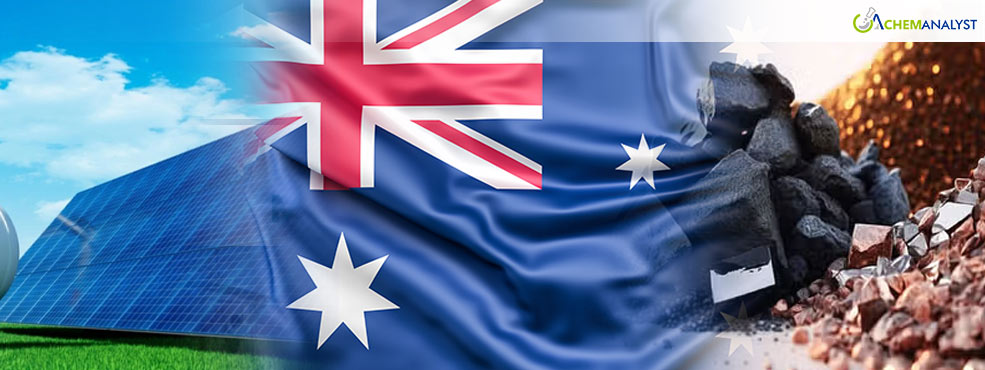Welcome To ChemAnalyst

Australia has enacted legislation introducing tax incentives for critical mineral processing and renewable hydrogen production, marking a major step to reduce reliance on China. The move aims to bolster domestic industries, create jobs, and diversify global supply chains for crucial materials needed for a greener future.
The newly passed law establishes a 10% production tax break for the processing and refining of 31 designated critical minerals, applicable from the fiscal year ending June 2028 to 2040. This incentive will apply for up to 10 years per project, encouraging long-term investment and development within the sector. Simultaneously, the legislation introduces a A$2 ($1.26) per kilogram tax incentive to produce renewable hydrogen.
Resources Minister Madeleine King emphasized the importance of processing these minerals domestically, stating that it will not only generate employment opportunities but also contribute to the diversification of global supply chains, currently heavily reliant on China. This initiative positions Australia to become a key player in the global critical minerals market, catering to the increasing demand for these resources in clean energy technologies.
The Australian government has allocated substantial funds to support these initiatives. The May budget outlined plans for A$7 billion in tax incentives for critical mineral processing and refining, and A$6.7 billion for renewable hydrogen production, both spanning from 2028 to 2040. These substantial financial commitments underscore the government's dedication to establishing Australia as a leading hub for critical minerals and renewable hydrogen.
The timing of this legislation is significant, as major economies worldwide are engaged in a race to secure access to critical minerals and rare earths. These materials are essential for manufacturing solar panels, batteries, electric vehicles, and other technologies crucial for reducing carbon emissions. They also play a vital role in defense applications, including the construction of submarines and aircraft. By incentivizing domestic processing and refining, Australia aims to compete effectively with China, the current dominant force in rare earth production.
While the legislation enjoys broad support for its goals, it faced opposition from the Liberal-National coalition. The coalition argued against the legislation, claiming that the tax credits are burdened by excessive bureaucratic hurdles and environmental regulations. They proposed amendments that would have relaxed environmental and Indigenous consultation requirements for companies, but these amendments were blocked by the Labor government and the Greens party. Despite this opposition, the government successfully passed the legislation, highlighting its commitment to balancing economic development with environmental and social considerations.
We use cookies to deliver the best possible experience on our website. To learn more, visit our Privacy Policy. By continuing to use this site or by closing this box, you consent to our use of cookies. More info.
